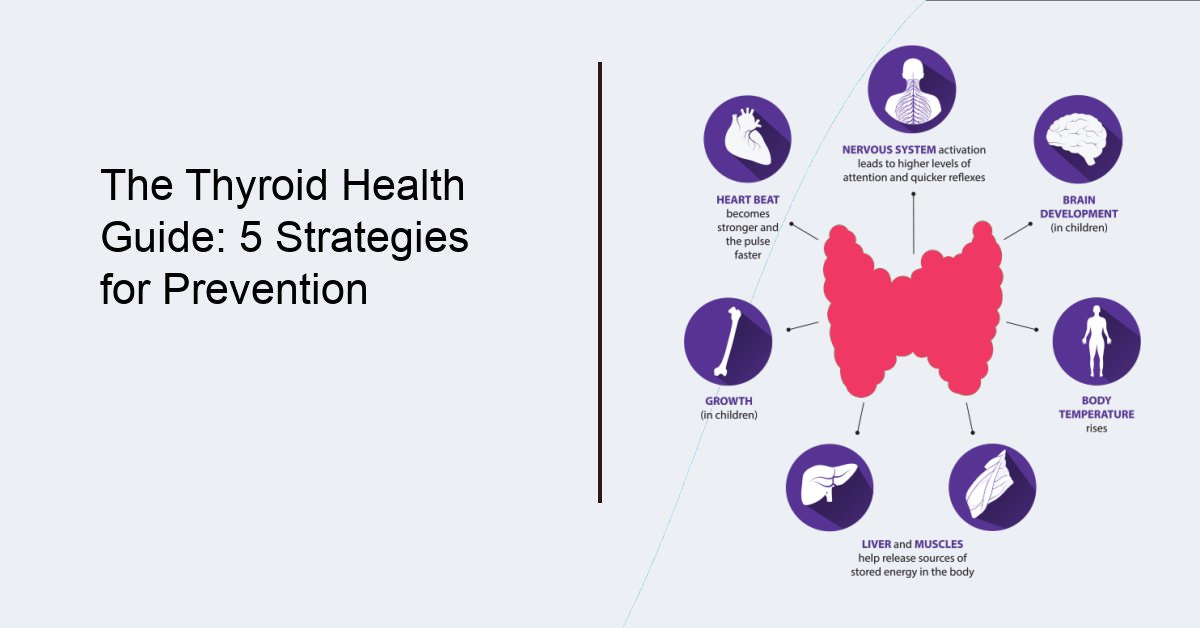The Thyroid Health Guide: 5 Strategies for Prevention
The thyroid gland, located in the neck, is responsible for producing hormones that regulate metabolism and energy levels in the body. When the thyroid gland produces too much or too little of these hormones, it can lead to various health problems. Thyroid disorders are more common in women than men, and the risk increases with age. However, there are several thyroid prevention strategies that can be implemented to maintain a healthy thyroid gland.
In this article, you will learn five thyroid prevention strategies, the symptoms of thyroid disorders, the best diet plans, and other important considerations.
What is Thyroid?
The thyroid is a butterfly-shaped gland located in the neck, just below the Adam’s apple. It is an essential part of the endocrine system, which is responsible for producing and regulating hormones in the body. The thyroid gland produces two main hormones, triiodothyronine (T3) and thyroxine (T4), which play a crucial role in regulating metabolism, growth, and development. The thyroid gland is also responsible for producing calcitonin, a hormone that helps regulate calcium levels in the body. When the thyroid gland is not functioning properly, it can lead to a variety of health problems, including thyroid disorders [1].
What are Thyroid Hormones?
Thyroid hormones are hormones produced by the thyroid gland, which is located in the neck. The two main thyroid hormones are triiodothyronine (T3) and thyroxine (T4). These hormones play a crucial role in regulating metabolism, growth, and development in the body.
T4 is the most abundant thyroid hormone and is often considered the “storage” form of thyroid hormone because it is converted to T3, the more active form of the hormone, in the liver and other tissues. T3 is considered the “active” form of thyroid hormone because it is responsible for the majority of the metabolic effects of thyroid hormone in the body.
Thyroid hormones are involved in a wide range of processes in the body, including:
- Regulating metabolism and energy production
- Supporting growth and development
- Regulating body temperature
- Maintaining heart rate and blood pressure
- Regulating the digestive system
- Supporting bone health and calcium balance
When the thyroid gland is not functioning properly and producing too much or too little thyroid hormone, it can lead to a variety of health problems, including thyroid disorders.Read More »The Thyroid Health Guide: 5 Strategies for Prevention
